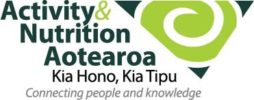09 Aug Medical Students’ Awareness of the Links between Physical Activity and Health
The effectiveness of physicians in providing advice to patients about physical activity (PA) is influenced by their own understanding of the links between PA and health, as well as by their own PA habits. Th is study involved pre-clinical medical students in New Zealand, examining their baseline knowledge, skills, and attitudes towards advising patients about PA, as well as eliciting their personal exercise habits. A total of 234 students (age 20.9±2.9 years; 46% males; participation rate: 99%) completed a paper questionnaire assessing their awareness of current PA guidelines, the benefi ts of PA, their attitudes toward PA advising, perceived competence and importance of PA-advising skills, and personal PA habits. Data were analysed using descriptive statistics. Most students were aware of the benefi ts of PA and were regularly active. Students perceived PA advising as a high priority in general practice (79%) but only 37% felt confi dent in their ability to provide PA advice. At this point in their training, students considered PA advice to be important (4.7±0.8 out of 6), yet perceived themselves to be only moderately competent in providing patient-oriented exercise prescriptions (3.1±0.8 out of 6). However, students who had regular exercise felt more confi dent in providing PA advice (3.0±0.9 vs. 3.3±0.9, p=0.009). In conclusion, medical students were generally active and had a good understanding of the links between PA and health, but were lacking skills for PA advising. Competence and skills in PA counselling need to be further developed within clinical training as part of an overall curriculum strategy.

